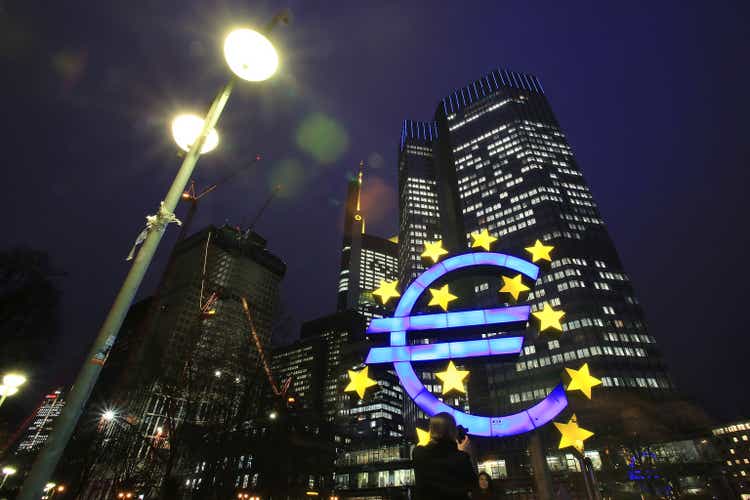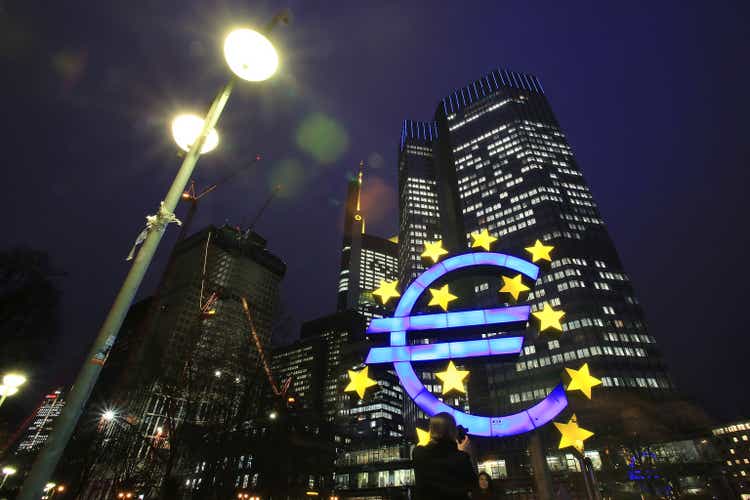
Hannelore Foerster/Getty Images News
The European Central Bank warned investors Wednesday on the potential hazards of concentrating too much money in U.S. tech, specifically the Magnificent Seven and other artificial intelligence-related stocks.
“This concentration among a few large firms raises concerns over the possibility of an AI-related asset price bubble,” the bank noted in its Financial Stability Review, which was published today. “Also, in a context of deeply integrated global equity markets, it points to the risk of adverse global spillovers, should earnings expectations for these firms be disappointed.”
The bank raised concerns over too much money invested in a handful of big tech names.
“Also, concentration of equity market capitalization and earnings among a handful of single names, notably in the United States, has increased greatly in recent years,” the report noted.
The ECB pointed that the Magnificent Seven comprises more than 30% of the total market capitalization in the S&P 500.
“Notably, earnings reporting from large tech companies such as Nvidia (NASDAQ:NVDA) have significantly influenced equity market volatility over the last few quarters,” the report said.
This means jolts in the U.S. tech sector could expose equity funds to volatility.
“While increased investor demand has also led to additional investment in these firms, the rise in concentration is largely due to significant valuation gains in a few large U.S. companies,” the report said. “In a context of high equity market concentration overall, potential overvaluation concerns and elevated volatility risk, shocks to individual companies or to the U.S. technology sector could lead to sudden drops in fund returns and subsequent sharp outflows, further amplifying market dynamics.”
The ECB serves the 20 European nations that use the euro. One of its primary duties is to set the interest rates at which it lends to commercial banks in the euro area, to manage money supply and inflation.
The ECB report also warned of vulnerabilities to financial systems through cyberattacks and climate change.
“These issues are associated with climate-related risks − both transition and physical − on the way to a low-carbon economy; cybersecurity weaknesses, including outages of systemic IT providers, and the rise of AI; and geopolitical fragmentation sending global economic, trade and financial integration into reverse,” the report said.
Finally, uncertainty stems from Russia’s war against Ukraine, the ongoing conflict in the Middle East, heightened trade tensions with China and the potential for new tariffs from the U.S.
